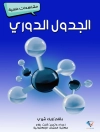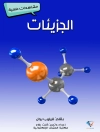This book provides a comprehensive overview of the development of therapeutic oligonucleotides for therapeutic applications, touching on a number of additional oligonucleotides including a number of small interfering RNAs currently in various phases of clinical development. Written by leading expert scientists from both academia and leading biotechnical companies, the authors provide a compelling update on current status of RNA interference with emphasis on fascinating topics including oligonucleotides: antisense oligonucleotides, ribozymes, si RNAs, decoy oligonucleotides and aptamers. This exceptional work will be a valid resource for researchers and students as well as academia, consultants and scientists.
विषयसूची
Chapter 1: The Role of Backbone Modifications in Oligonucleotide-Based Strategies;
Chapter 2: Genasense (G3139): An Antisense Bcl-2 Oligodeoxyribonucleotide with Substantial Clinical Activity and a Complex Mechanism of Action;
Chapter 3: Antisense Morpholino Oligomers and Their Peptide Conjugates;
Chapter 4: Peptide-PNA Conjugates for Modulation of Gene Expression;
Chapter 5: Locked Nucleic Acid: Properties & Therapeutic Aspects;
Chapter 6: Immune Stimulatory Oligonucleotides;
Chapter 7: Decoy Oligonucleotides to Treat Inflammatory Diseases;
Chapter 8: AS1411: Development of an Anticancer Aptamer;
Chapter 9: Spielgelmer NOX-E36 for Renal Diseases;
Chapter 10: Strategies for the Delivery of Oligonucleotides In Vivo;
Chapter 11: Lipid-Mediated in vivo Delivery of Small Interfering RNAs;
Chapter 12: Vector-Mediated and Viral Delivery of Short Hairpin RNAs;
Chapter 13: Development of an RNAi Based Gene Therapy against HIV-1;
Chapter 14: RNA Based Therapies for Treatment of HIV Infection
लेखक के बारे में
Jens Kurreck is professor for nucleic acids technologies at the University of Stuttgart (Germany). He received his Ph D at the Technical University Berlin in 1998 and was a postdoc at the Arizona State University in Tempe, USA. From 1999 to 2007 he was assistant professor (‘Habilitand’) at the Free University Berlin. Furthermore, he holds a master’s degree in philosophy. His group has been working in the field of gene silencing for many years with a focus on pain research and heart muscle infections. In 2005, Jens Kurreck received the award for the best teaching at the biochemistry department as well as the Young Scientist Lectureship Award of the European Society for Neurochemistry (ESN).












